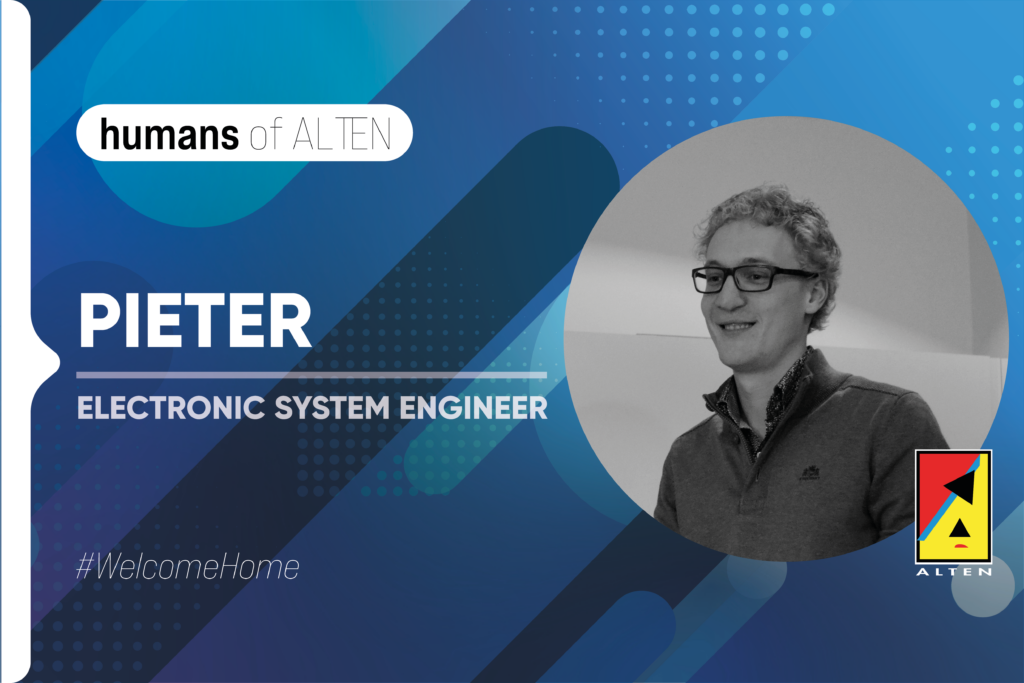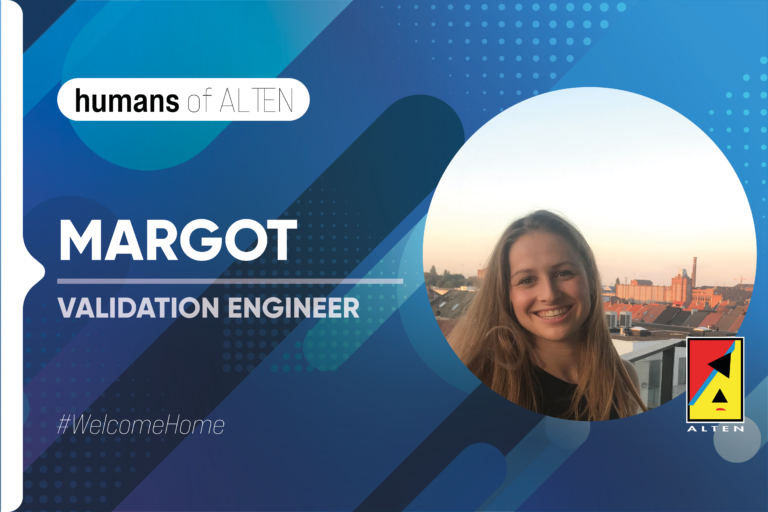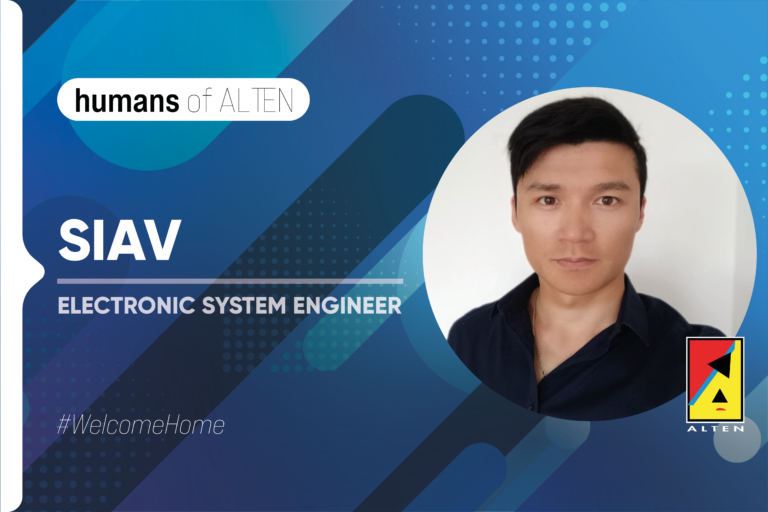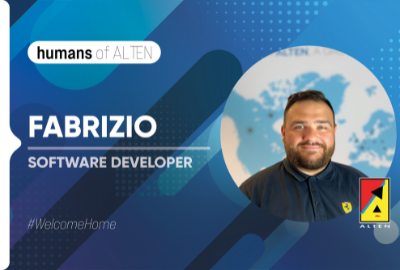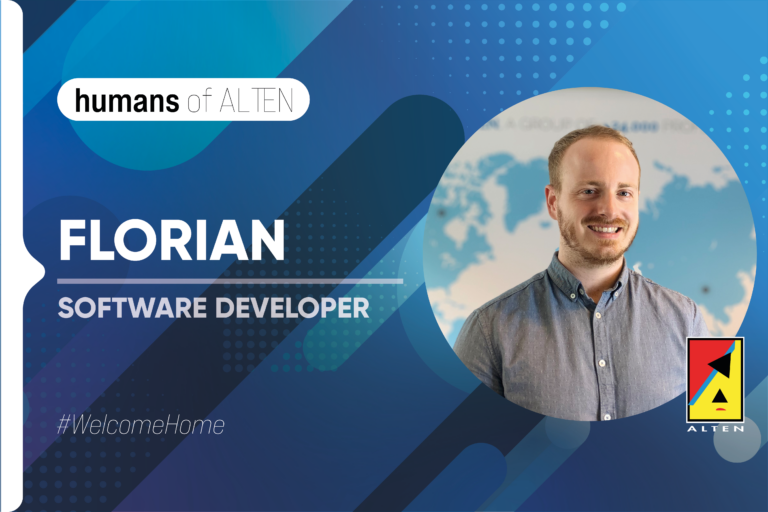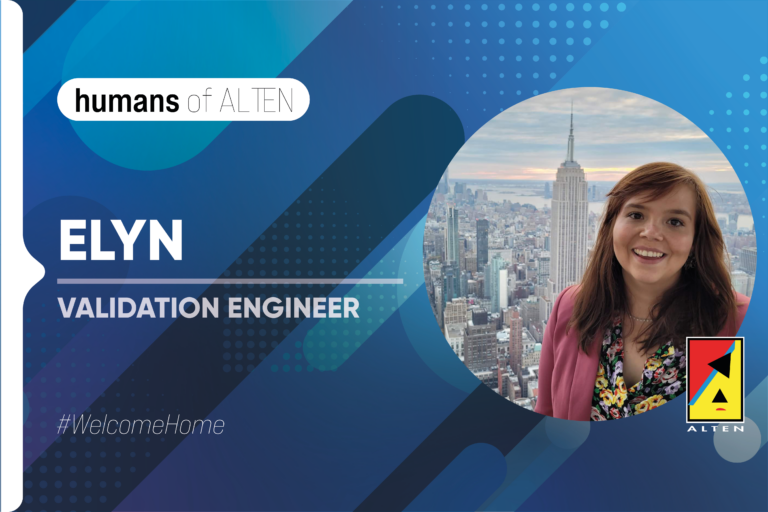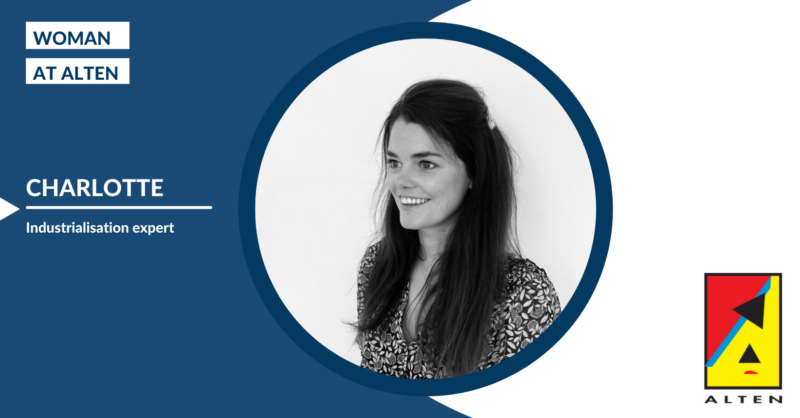Pieter is a Electronic System Engineer at ALTEN. Discover his testimonial in which he introduces himself and describes his experiences. Could you please introduce yourself?
My name is Pieter and I’m an Expert Consultant in ALTEN’s Engineering Division where I’m active in the automotive domain.
I hold two degrees: one as a Bachelor in Vehicle Technology and a Master of Science Electronics/Information and Communication Technology where I majored in Automotive Engineering.
I grew up near the linguistic border between East-Flanders and Hainaut, I graduated at the University of Antwerp and I’m currently working in West-Flanders. Any remaining spare time is spent with my family (partner, daughter & dog) or with indoor climbing.
What does it mean to be an Electronic System Engineer?
As a Systems Engineer, I’m responsible for identifying the various functional and non-functional needs on the system level from both internal and external stakeholders that will interact with the development object.
The system level is where all individual engineering disciplines meet: in the automotive domain this would be the combination of mechanics, hydraulics, electronical hardware, software as well as high-voltage seen the recent trend towards electrification. A list of internal stakeholders would be the different departments within a company, ranging from engineering through production and service. And finally, the external stakeholders are typically the car manufactures (called OEM) to which driveline systems are sold.
In the role as a system engineer, it’s important to keep a generalist view on the full system rather than a narrow technical specialist view. Next to that, keeping an abstract view to think in functionality (“WHAT”) rather than solutions (“HOW”) is also an important aspect to keep into account. I often say: “I know a lot about many different things, but I don’t know anything about anything specific in depth”
Which skills are needed for this job position?
There is no “ one size fits all ” skills here, so what I will describe is my specific personal skillset. From experience, the best systems engineering work was achieved with a diverse team of systems engineers, all with specific views and opinions.
- Interpersonal skills: The most important skill, in my opinion, is the ability to have conversations with other human beings to understand their needs and expectations. Different interview or elicitations techniques can be taught on the job, but if you are uncomfortable in conversations the job as a systems engineer could remain awkward. Next to being a good communicator, it’s also required to be a good listener and accept criticism from expert without feeling offended.
- Technical domain skills: You don’t need to be a technical expert, but some basic technical knowledge will help you identify implicit hypotheses or recognize constraints. Often when talking to experts implicit hypotheses about ‘basic knowledge’ is made, without being voiced. Therefore, having a general idea on the technology can help you to pinpoint those.
- Decision making skills: When all stakeholders have been heard and ambiguous or down-right conflicting statements are available, somebody has to take a decision to make progress and avoid turning in circles. This decision is not a final “once and for all”, but a foundation layer on which to build further improvements.
- Record keeping mindset: Last but not least is record keeping and writing skills. All the discussion and trade-offs have to be capture in some form of informal text and diagrams that don’t contain any errors or ambiguity as this will be the basis for further development.
How does an average day in the life of an Electronic System Engineer looks like?
My average day is very ‘plannable’ and this planning is very unlikely to be disturbed by some kind of emergency. My days are a mixture of focus time where I’m individually working on a specific task and general project related meetings. Individual tasks range from 1-on-1 to 1-to-many talks with various stakeholders through writing requirements and supporting diagrams in tools such as IBM DOORS, Polarion or Codebeamer ALM for requirements management and Visio, draw.io or Enterprise Architect for the supporting SysML / UML diagrams. Another activity could be reviewing the technical work products of a colleague or auditing their compliance to the requirements management process.
What do you like about your job?
I think what I like most is the variation in the activities to be performed, as well as the ever-changing technical context in the automotive industry which is rapidly evolving in terms of technology: both electrification as well as ‘smartphonization’ (continuous infotainment updates and additional features throughout the full vehicle life) are game changing to an industry that not too long ago was just selling low-tech metallic boxes and call these cars.
How can you develop your skills & experience at ALTEN?
ALTEN has a dedicated training academy to organize formal training on various technical subjects as well as soft-skills training. Looking back at my own track-record with the academy, I followed various (technical) trainings, both in Belgium as well as abroad that really provided helpful skills for my job.
Next to formal training, there are also Knowledge Sharing Sessions (KSS) where ALTEN consultants from the various business units (Life Science, Engineering & IT) can share their insights acquired from their various projects, some of the subjects covered so far include “The Future of Motorisation”, “The Energy Switch” and “Operational Excellence”. Now that sanitary restrictions are lifted there is even the possibility to meet back in person and share a bite with each other while discussing the recently gained insights.
What do you like about working at ALTEN?
What I like about ALTEN is both the reach of their network, in terms of other technical consultants and/or the various clients and projects. Besides these work-related perks, there are also a bunch of afterwork events that cater to the individual needs in offering both digital-only events as well as physical meetings. Depending on your preferences you could join a conversation table to sharpen your Dutch, French, English or German (and more) language skills, the monthly pub quiz or the “Stay Active Together”- classes to practice yoga, boxing or Zumba. In terms of physical events there is also plenty to choose from: ranging from an informal Christmas-party, through a more formal team meeting where the business progress gets discussed. The most recent addition to the physical meetings are regional events where all consultants who are working on a project in East or West-Flanders get together in ‘our’ region; so far we went golfing and bowling and I’m looking forward to the next installment and see the team growth be made tangible.
Where do you see yourself in your future career?
Through the various projects I have learned that I really need a technical mission to feel challenged, therefor I’m sure that my future career will not guide me towards something managerial. Apart from that, I really like what I do now as a systems engineer, so I’ll wait and see what opportunities open up in the future. Who knows, maybe a move away from automotive into medical – or consumer devices? A lot is possible at ALTEN 😊
According to you, why should candidates apply to this vacancy?
Because the role of a system engineer is truly unique in my opinion; in what other role do you need a combination of both technical skills and soft skills, that offers a very plannable schedule that is not interrupt driven in a domain that keeps changing such that it doesn’t feel like rinse & repeat?
→ Are you interested in a job as an Electronic System Engineer? Then click here




